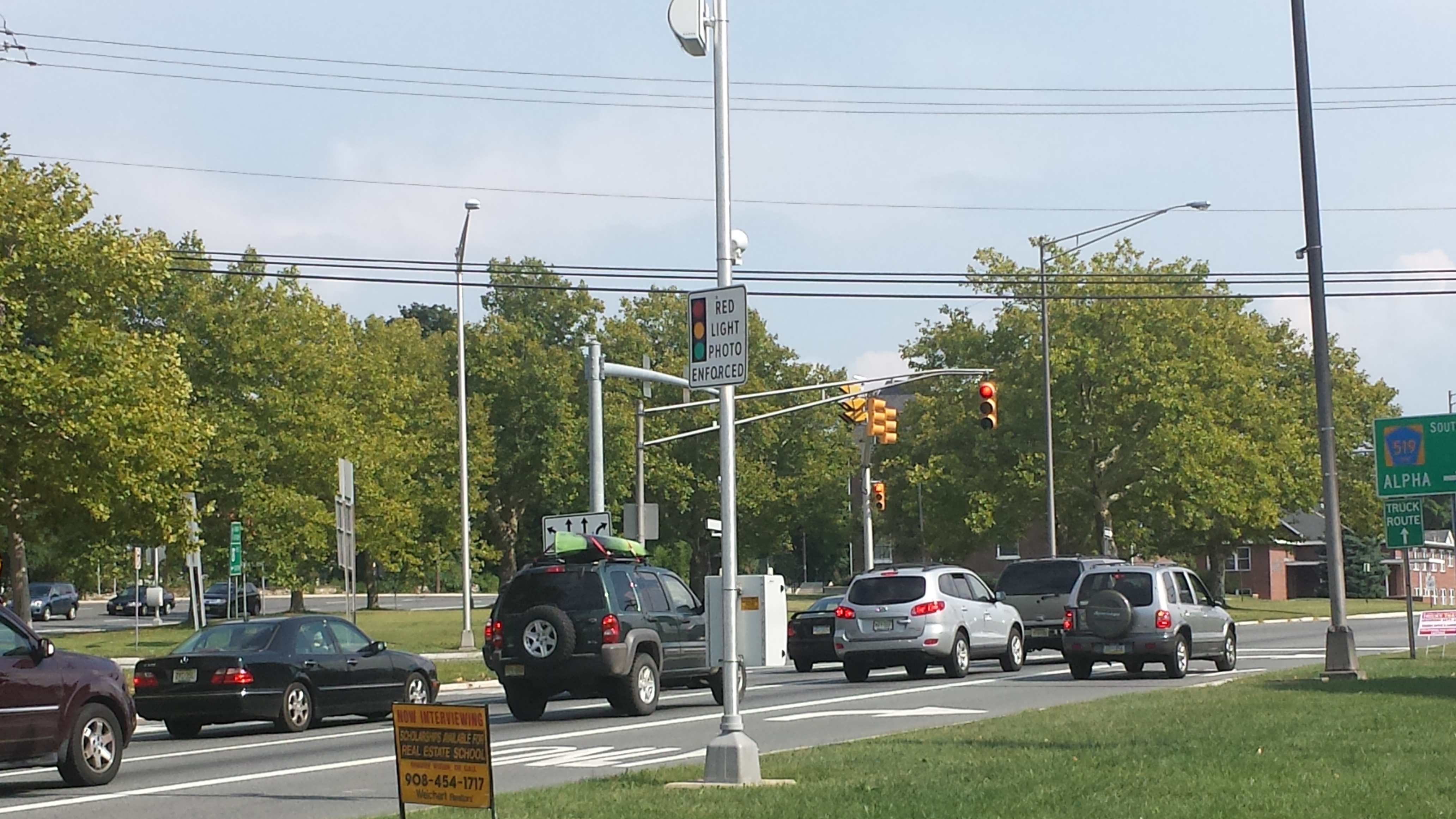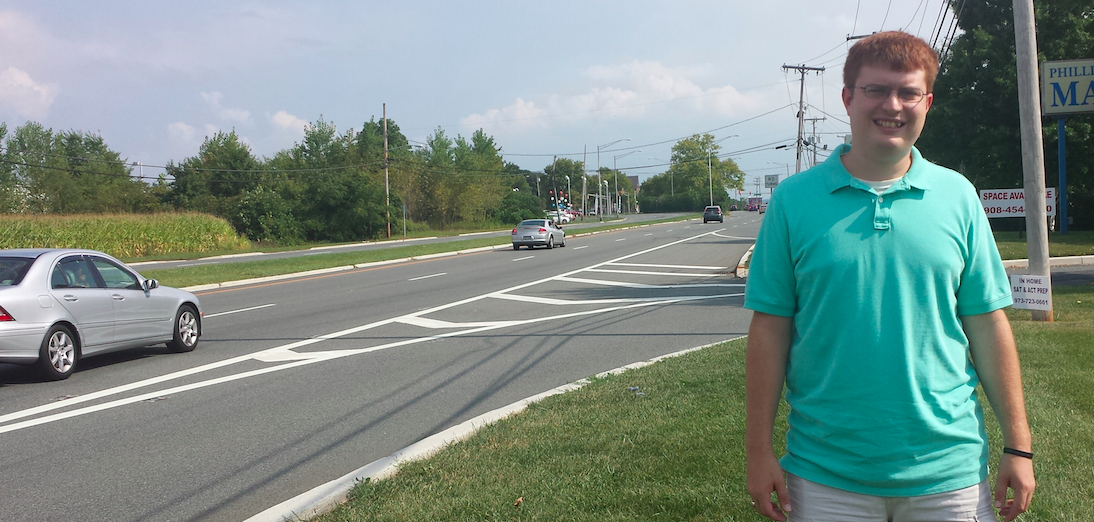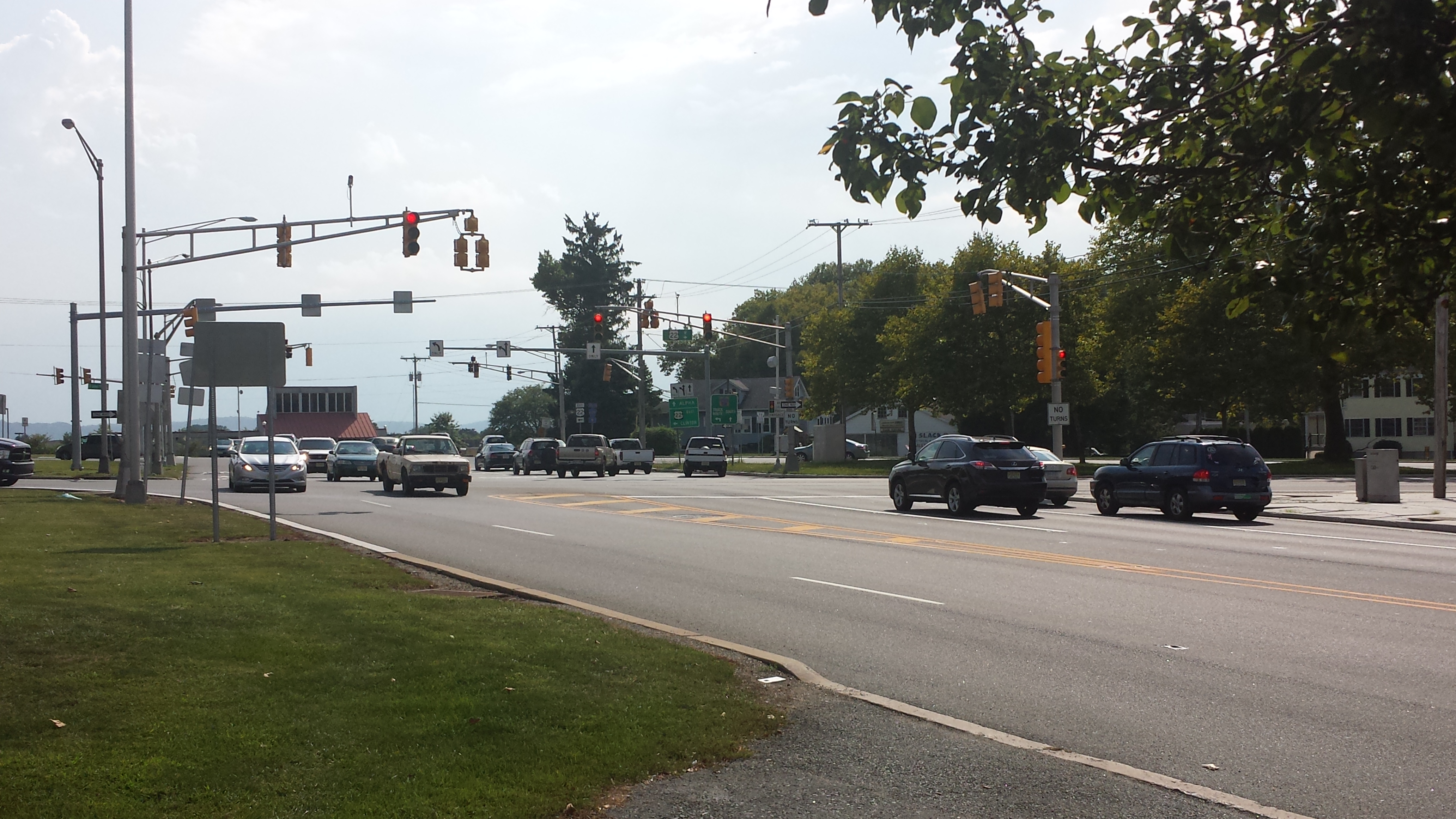Connecting state and local government leaders
James Kern III, elected as the Garden State’s youngest mayor, explains why he thinks automated traffic enforcement is wrong for his locality.
POHATCONG TOWNSHIP, N.J. — In mid-December, all of New Jersey’s red-light enforcement cameras are likely to cease operations. The law that authorized the state’s pilot program in approximately two-dozen Garden State communities expires and state leaders, including Gov. Chris Christie, are set to let the camera-enabled automated traffic enforcement program die.
That would include the lone set of traffic cameras in this northwestern New Jersey township just outside Phillipsburg, roughly an hour west of New York City where Interstate 78 crosses the Delaware River into Pennsylvania’s Lehigh Valley.
“I think it’s done,” says Mayor James Kern III, who recounted his experience dealing with red-light cameras during a recent interview at the local Panera Bread on U.S. Route 22, just down the road from what he says has become the most dreaded intersection in the area for local motorists. The mayor says that many of his constituents now simply avoid traveling through it.
Looking at a map, Route 22’s atypical, partially angled intersection with County Route 519 is a logical place to deploy red-light cameras. It’s situated along a fast-moving suburbanized six-lane stretch of divided highway part way between the Phillipsburg Mall and an interchange with I-78. There’s a church wedged into the median. There are no sidewalks. Route 22 also offers an alternative way for Pennsylvania-bound travelers to cross the Delaware River.
It’s an intersection that’s required a lot of Kern’s attention since he was elected mayor in 2011 at the age of 22. He jokes that he could write a book about red-light cameras.
If he ever does, the mayor certainly has plenty of source material from his tenure as mayor. That would include a dispute with Pohatcong Township’s Warren County neighbor, Greenwich Township, which led to the deactivation of red-light cameras at a second local intersection that overlaps their border, at U.S. Route 22 and County Route 122.
Observing the fight over New Jersey’s red-light camera program from his corner of the state, Kern describes the implementation of the state’s pilot as an approach that makes sense in theory but has been very rocky in practice. Problems with the camera activations have generated statewide attention, including how the enforcement devices were not calibrated properly, leading to errors and embarrassment.
But infractions recorded by the cameras have also injected new revenue into the coffers of local jurisdictions participating in the pilot program. That’s been a blessing and a curse for localities, Kern says.
“The other towns in New Jersey,” Kern says, “they’re just looking at the money.” Not that his township, with a population of roughly 3,400 residents, hasn’t seen a budgetary boost from the cameras—that’s been roughly $400,000 for the most recent budget year, he says. But Kern thinks the township doesn’t need to depend on that camera revenue as some other communities have.

Approaching the most dreaded intersection in all of northwest New Jersey. (Photo by Michael Grass / GovExec.com)
According to Pohatcong Township Police Chief Jeffrey Greenmeir, there were 9,384 summonses issued in 2012, the first full year the camera was in operation, at the intersection of Route 22 and Route 519. In 2013, that number dipped to 8,742 citations.
In 2010, the last full year before traffic cameras were activated, there were 40 accidents at the intersection. In 2011, the year the cameras were activated, there were 35 accidents, including the three months the cameras were active. In 2012, the first full year after the cameras were activated, there were 16 accidents. In 2013, the intersection had 32 accidents, according to the chief’s data.
But Kern says he doesn’t feel that his constituents have seen much of a safety benefit and that the cameras are essentially an indirect and effective way to tax non-locals passing through the township.
He says if the pilot program is somehow saved at the state level, he won’t re-sign Pohatcong’s contract. And because of automated enforcement’s problematic track record this far in his community, Kern also says he’s also against the traffic enforcement cameras being used to check vehicle speeds despite there being no set plans to introduce that level of enforcement by the state if the red-light camera program is renewed.
In November 2012, Pohatcong Township voters approved a non-binding referendum in support of the red-light cameras 56 percent to 44 percent.
“We’ve had an honest dialogue,” the mayor says.

Pohatcong Township Mayor James Kern III (Photo by Michael Grass / GovExec.com)
A statewide poll sponsored by a red-light camera contractor also tried to take the temperature of New Jersey residents.
According to the Express-Times newspaper in Pennsylvania’s Lehigh Valley:
American Traffic Solutions, the Arizona-based red light camera contractor for Pohatcong and 23 other New Jersey municipalities, paid for the poll of 600 registered voters that found 37 percent opposed the use of cameras, and 36 percent wanted to discontinue the program.
The poll was conducted by Adam Geller, who was pollster for both of Christie's gubernatorial campaigns. American Traffic Solutions, or ATS, runs about half of New Jersey's 73 red light cameras.
Kern says that among red-light camera opponents, distrust in government fuels suspicion of the cameras. And the bumpy pilot program didn’t help either.
“You want [implementation] to be flawless,” the mayor says. But problems “casted doubts right away.”
So too has criticism and media coverage of red-light cameras in other parts of the country, which includes the allegations of bribery by camera contractor in Chicago and jaw-dropping stories of erroneous automated-enforcement citations, including a truck that was ticketed for speeding while parked in Baltimore.
"Things like this will kill the program!” a Baltimore police sergeant wrote to a camera contractor in an email obtained by The Sun.
In the nation’s capital, a recent District of Columbia inspector general’s report showed how often mistakes were made when deciding precisely which car was speeding when a camera snapped a photo of multiple cars on a multi-lane street. “The reality is that the District often issues speeding tickets without conclusive identification of the violating vehicle,” inspector general’s report said, according to The Washington Post.
The chief of D.C.’s Metropolitan Police Department, Cathy Lanier described the report as “sensationalist,” the Post reported.
Lanier has been a long-time supporter of D.C.’s automated traffic enforcement program, which she says has slowed down traffic and has made city streets safer for everyone who uses them. It’s also allowed her to redeploy officers from traffic enforcement to other law enforcement priorities.
Even though camera enforcement is technically automated, it does require human management and Kern’s jurisdiction is significantly smaller than the nation’s capital.

Another look at where Route 22 and Route 519 meet. (Photo by Michael Grass / GovExec.com)
In Pohatcong Township, the cameras have created a lot of extra administrative work, Kern says. It’s required the township to have a police officer detailed to reviewing red-light camera summons and deal with additional court processing and open-records requests from the public.
All that “doesn’t justify putting up a camera,” Kern says.
“Mayor Kern is sending exactly the right message,” New Jersey Assemblyman Declan O’Scanlon, one of state’s loudest opponents of red-light cameras, said in a recent statement, where he has warned that Assemblyman John Wisniewski, who supports the red-light camera program, has not just advocated for the its renewal but also its expansion to include automated speed enforcement in construction and school zones.
O’Scanlon continues: “We have been through the red light camera nightmare – which Pohatcong initially embraced. The Pohatcong officials found out what honest host communities invariably find – the cameras provide no safety benefit. They do enrich the companies that operate them. The red light camera program looks like it will die a merciful death in December. Extending it, or even worse expanding it and adding speed cameras, would be a huge mistake. Our taxpayers would be the losers.
NEXT STORY: Making Seattle's Waterfront Vision a Reality




